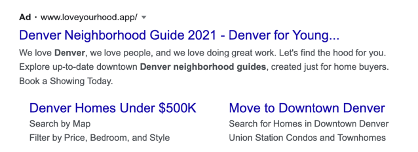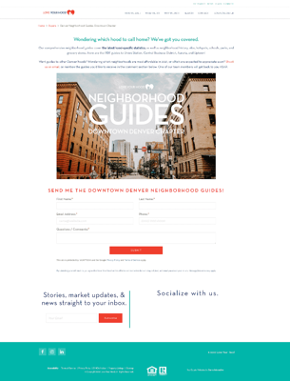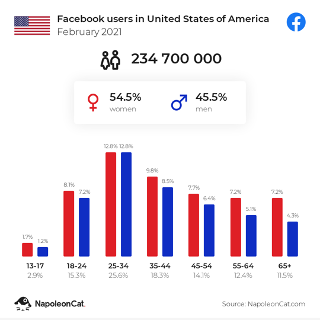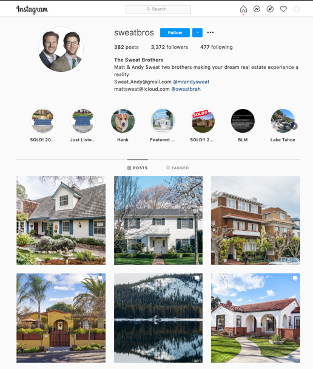It’s no mystery that the traditional homebuyer’s journey looks significantly different today than it did 10 or 20 years ago.
Back then, those looking for a new home typically had to visit a real estate agent’s office, fill out tons of paperwork, flip through marketing packets, and ride along with realtors as they viewed available properties in different neighborhoods.
These days, potential homebuyers research listings online before they even contact a real estate agent. According to the National Association of Realtors, 52% of homebuyers first turned to the internet to find their new home — almost double the number of buyers who went through a traditional real estate agent.
With this shift, today’s real estate agents need to use real estate digital marketing to capture leads.
This marketing requires more than just setting up a Facebook page. With potential homebuyers in so many places online, real estate agents need a mix of channels to gain leads and drive home more sales. Knowing which digital marketing strategies to use — and, more importantly, how to effectively implement them in your business — is critical to your success.
Create landing pages to generate more leads
Not to be confused with a homepage, a landing page is a web page with the sole purpose of converting visitors — in this case, potential homebuyers — into leads.
Whether you’re showcasing a property or offering a promotion to new clients, landing pages work by providing easy value offers to visitors in return for their contact information. If you’re showcasing a property, you could offer “exclusive details” about a listing or provide a free walk-through evaluation for individuals looking to sell their homes.
When used with pay-per-click (PPC) advertising, landing pages are especially effective. Google and Facebook ads, for example, allow you to target your ads to geographic locations and demographics with pinpoint accuracy — meaning you can reach audiences who are most likely to be interested in what you have to offer.
Imagine a young couple is looking to buy a home in a family-friendly neighborhood in Denver, Colorado. How do they find a neighborhood that fits the bill? They quickly take their search online, where they find a Google ad from Love Your Hood:
The ad takes them to a simple landing page offering a free, downloadable neighborhood guide in exchange for their contact information.
Source: Love Your Hood
They input their information for the guide, permitting for Love Your Hood and other real estate brokers to contact them in the future. And just like that, by providing value, this targeted ad and landing page combo resulted in a qualified lead.
The possibilities for real estate landing pages are endless, and they’re relatively easy to set up using landing page software and templates from Unbounce, Instapage, and Leadpages. Combined with targeted PPC ads, landing pages make lead generation simple, streamlined, and highly effective.
Related: 8 real estate landing page examples & why they convert
Start a referral program
Setting up a referral program for your real estate business can help you drum up highly qualified leads — all while still meeting prospective buyers in their preferred online marketing channels.
Why should a realtor consider setting up a referral program? The numbers speak for themselves. Ninety-three percent of consumers say they trust the recommendations of family and friends more than any other form of advertising, and 42% of homebuyers used family and friend recommendations to find a realtor. People are also four times more likely to make a purchase when referred by a friend or family member.

Here are three steps you can take to start a successful real estate referral program:
- Set up a landing page on your website that clearly and boldly states the incentive and reward for successfully referring a potential homebuyer to your real estate business.
- Tell your friends, family, and past clients about your new referral program and how they stand to benefit if they send you a successful referral.
- Use social media channels to promote your referral program to reach broader audiences.
- Use a dedicated referral tool like Extole to keep track of your referral marketing and reward high-performing referrers.
Take advantage of the good rapport you’ve built with clients. Build a referral program that encourages them to spread the word and help you grow your business.
Pick up the phone
As you begin gathering leads from your landing pages and referral programs, it’s time to start making phone calls to connect with prospective clients on a personal level.

But aren’t phone calls a little old school?
Although people are spending more time tapping out messages and emails, a study conducted by BrightLocal found that 60% of consumers prefer communicating with a business over the phone. According to a Google study, this statistic holds especially true when a lead is in the purchase phase of the shopping process.
Regularly picking up the phone needs to be a marketing strategy you build into your real estate business.
Here are some ways you can connect with real estate clients on the phone:
- For previous clients, consider calling to see how the move-in process is going or ask how they’re settling into their new home.
- For current real estate leads who are still in the market for a home, call to let them know of any new listings you think they might be interested in.
- And for cold calls or referrals you’ve received, call to introduce yourself and ask if there’s anything specific you can do to help them as they look for a new home.
These personal phone calls will help you not only build relationships but also potentially solicit referrals and reviews. Plus, with call tracking and recording software, phone conversations provide a treasure trove of client and marketing data you can use to grow your business (more on that later).
Stay social (as the kids say, “Do it for the ‘gram!”)
Social media is everywhere, so you’re missing out on a huge real estate digital marketing opportunity if you’re not on these platforms. Besides being ideal for showcasing gorgeous home imagery, many social media channels offer advanced targeting options. Use these features to reach your target homebuyer and build a following of users you can regularly engage.
Source: NapoleonCat
Facebook is still the leading contender for real estate marketing. Facebook’s largest demographic is 25- to 34-year-olds — the same age group as the average first-time American homebuyer. Setting up a Facebook page allows realtors to list their inventory for free on Facebook Marketplace, use geolocation to create a digital map of their property listings, gather reviews and social proof, and, most importantly, utilize Facebook’s laser-focused advertising system.
Instagram is another leader for social media marketing, with nearly 134 million users in the United States alone. Its emphasis on stunning visuals and minimal text lets realtors showcase their properties and grab potential homebuyers’ attention. It also allows users to geotag their posts to a specific area and create a digital map of available inventory. And with Instagram, you don’t even need a business account to get started.
Source: Instagram, The Sweat Bros
Some ideas to start using social media for real estate digital marketing include:
- 360º panoramic photos of living spaces, kitchens, bedrooms, etc
- Virtual open houses where you walk viewers through an available home
- Photos of new and recently sold properties
- Testimonials of your happy homebuyers
If you’re looking for inspiration from other realtors on how you can use Instagram for your real estate marketing, check out Homespotter’s list of the 12 best Instagram accounts every real estate agent should be following.
Track potential homebuyers using phone calls and lead forms
If you keep getting calls from potential buyers about your new listing but have no idea whether they came from your PPC ad or real estate landing page, how can you attribute that conversion back to the right marketing channel?
Call tracking and form submission tracking make it simple to view which channels — both online and off — drive visitors to pick up the phone or fill out contact forms on your website. This data will help you see which of your marketing channels are driving the most (or highest quality) leads, allowing you to maximize your advertising budget by getting an accurate picture of client acquisition costs.
Call tracking platforms also allow you to do away with clunky phone systems, make calls, and send texts to clients through the internet. Never miss a call, follow up with potential homebuyers faster, and track your customer marketing journey — all on one single platform.
Find more prospective homebuyers with real estate digital marketing
The face of real estate marketing has changed significantly in the last two decades, but the goal of helping people find and sell their homes has not. Technology has provided amazing opportunities to grow your real estate business. As it continues to advance, make it a habit to stay up to date on digital trends to engage with homebuyers in the most effective way possible.
Having trouble keeping track of and effectively following up with new and existing leads? Check out this blog to learn more about why real estate professionals are switching to Lead Center to give them an edge in their inbound and outbound phone marketing.
This blog was originally published on June 6, 2017 and was updated.









